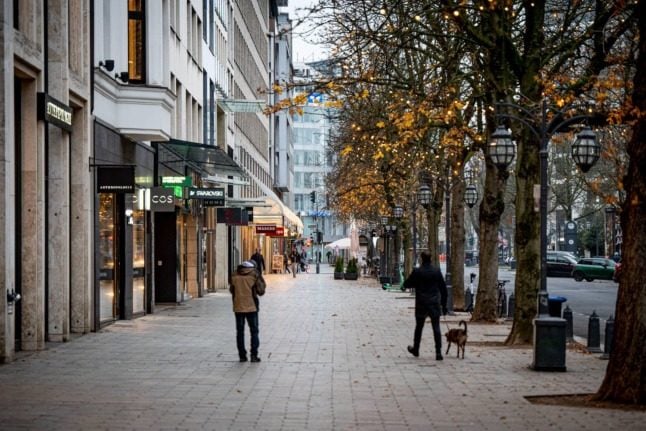The RKI said Germany was at the beginning of a new Covid wave fuelled by the more transmissible Omicron variant.
Health experts in the public agency for disease control recommend measures to be taken “immediately” and into next year.
“Although the Omicron wave is still in the early stages in Germany, a look at other countries shows that that this variant is likely to lead to a wave of infections,” said the RKI, adding that the variant is “easily transmissible” even in fully vaccinated and recovered people.
The RKI estimates that Omicron will become the dominant variant “by the beginning of January 2022” and estimates tens of thousands of infections every day. Currently, it is doubling in Germany roughly every three days.
Germany’s Covid infections caused by the Delta wave are currently declining but the number of cases, hospitalisations and deaths still remain at a high level.
Health experts fear that if many people are infected around the same time, hospitals will be overburdened and critical services, like police, the fire service and public transport, will fail due to mass sickness.
The course of the Omicron wave depends on people’s behaviour over the festive season, said experts.
READ ALSO: German health agency raises Covid risk level for the vaccinated
What is the RKI recommending?
They urged politicians to bring in these measures now until at least mid January:
– Maximum contact restrictions
– Maximum infection prevention measures
– Maximum speed in vaccinating the population (initial and booster vaccinations)
– Reduction of travel to “what is absolutely necessary”
– Strong communication to the public so people understand the measures
Going into more detail, the RKI recommended closing all bars, clubs, restaurants (except for takeaway) and indoor sports, as well as cancelling all large events.
They also said Covid health pass rules should be tightened. The RKI said the 2G rule should continue for shops (only vaccinated and recovered people can enter) and that the 3G rule should be in place for supermarkets (where you have to be vaccinated, recovered or tested).
They recommend immediately:
– continuous masking indoors (and outdoors if <1,5 m distance), incl. for vaccinated people and in schools
– closing all bars, clubs, restaurants (except for takeaway), indoor sports
– cancelling large events— Kai Kupferschmidt (@kakape) December 21, 2021
They also recommended extra testing for some other parts of public life (the 2G-plus or 3G-plus rule). Experts also called on a ban on singing indoors (for example in church).
The RKI said that putting these measures in place now will help medical staff focus on carrying out jabs and booster shots.
What is the government planning?
German Chancellor Olaf Scholz and German state leaders are deciding new Covid measures on Tuesday.
They want to close nightclubs and discos, as well as limit gatherings to 10 people (for the vaccinated and recovered) from December 28th.
However, the final resolution from the meeting may be different.
READ MORE: EXPLAINED – German leaders consider new restrictions to fight Omicron wave
Some state leaders want tougher restrictions.
Baden-Württemberg’s state premier Winfried Kretschmann (Greens) called on the Bundestag to implement the “epidemic situation of national importance” once again after it was allowed to expire on November 25th.
It was a special clause introduced at the start of the pandemic that allowed federal and state governments to order measures quickly without the approval of parliaments.
But Justice Minister Marco Buschmann (FDP) warned against extreme restrictions.
“We must do everything to prevent another lockdown,” he said.



 Please whitelist us to continue reading.
Please whitelist us to continue reading.
Member comments